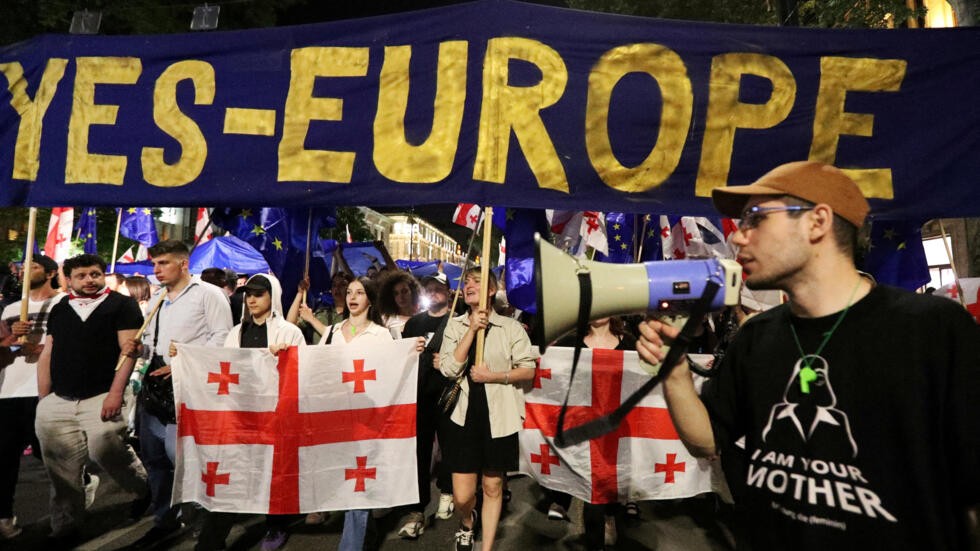29/04/2024
29/04/2024

TBILISI, April 29: In Georgia, widespread anti-government protests have erupted since mid-April, triggered by the ruling Georgian Dream party's reintroduction of legislation critics argue resembles Russian laws aimed at stifling dissent.
Similar protests in 2023 compelled the party to withdraw a comparable measure after facing public outcry. However, tensions reignited as police clashed with demonstrators during recent rallies.
On Sunday evening, an estimated 20,000 people gathered at Tbilisi's central Republic Square for a "March for Europe," according to AFP estimates. The procession, featuring a prominent EU flag, stretched along Tbilisi's main thoroughfare toward parliament.
"I am here to protect Georgia's European future," remarked 19-year-old protester Lasha Chkheidze. "No to Russia, no to the Russian law, yes to Europe."
Organized by approximately 100 Georgian rights groups and opposition parties, the rally represented a departure from the youth-dominated protests seen previously.
"The authorities, by reintroducing the Russian bill, are surpassing constitutional boundaries and altering the country's direction, betraying the steadfast will of the people," stated the organizers.
During the largely peaceful rally, demonstrators attempted to raise an EU flag outside parliament, prompting police to deploy pepper spray. The interior ministry described the protest as turning violent, with demonstrators allegedly confronting law enforcement both physically and verbally.
As tensions escalate, Georgia's ruling party has announced its rally on Monday, coinciding with a parliamentary committee's second reading of the contentious bill. If passed, the legislation would compel NGOs and media organizations receiving over 20 percent of funding from abroad to register as entities serving foreign interests.
While President Salome Zurabishvili has pledged to veto the law, Georgian Dream's legislative majority renders it capable of passing laws and overriding presidential vetoes without opposition support.
Critics accuse Georgian Dream of veering the nation towards closer ties with Russia, contrasting the party's assertions of pro-European alignment with the proposed legislation's implications.
EU Chief Charles Michel has denounced the bill, asserting its inconsistency with Georgia's EU aspirations. He warned that the legislation would distance Georgia from the EU rather than drawing it closer.
Despite Georgia's official candidate status granted by the EU in December, further progress toward membership hinges on substantial reforms, including judicial, electoral, and press freedom reforms, as well as addressing political polarization and curbing oligarchic influence.
Once heralded for democratic advancements in the post-Soviet sphere, Georgia now faces criticism for perceived democratic regression.


